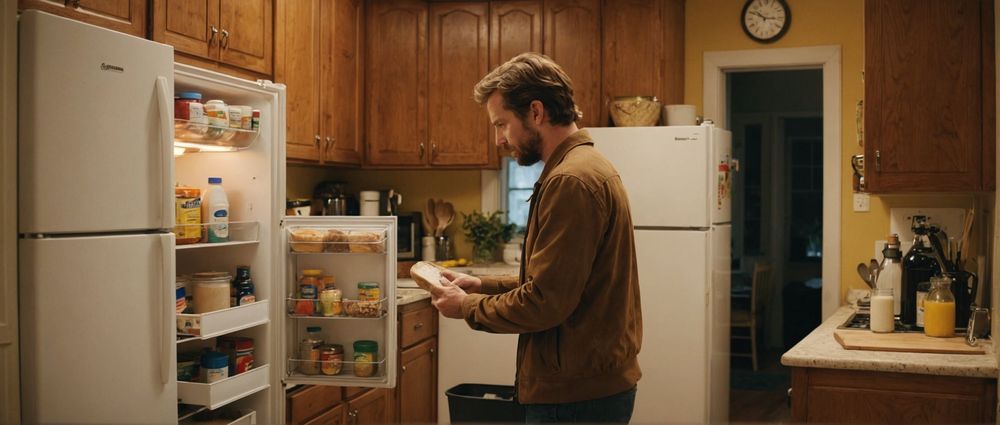If your refrigerator or freezer has developed an unpleasant odor, you’re not alone. This is a common issue many homeowners face, and fortunately, there are effective ways to eliminate those smells. The main topic of this article focuses on identifying the sources of bad odors and providing practical tips to eradicate them completely. By understanding the causes and applying simple solutions, you can ensure your refrigerator and freezer remain fresh and odor-free. Below, we will explore various methods and preventive measures to keep your cooling appliances smelling clean.
Identify the Source of the Odor

The first step in addressing bad smells in your refrigerator and freezer is identifying the source. Many odors can stem from spoiled food, spills, or even mold growth. It’s essential to routinely check the contents of your fridge to eliminate any items that may be causing the smell. Here’s a quick checklist to help you identify problem areas:
- Inspect for spoiled fruits and vegetables.
- Check meat and dairy products for expiration dates.
- Look for spills or leaks at the bottom of the fridge.
- Examine the shelves and compartments for mold or mildew.
- Evaluate leftover items in the freezer for freezer burn or spoilage.
By taking time to thoroughly investigate your refrigerator and freezer, you can quickly pinpoint the source of the unpleasant smell, allowing for targeted cleaning efforts.
Clean and Disinfect the Interior

Once you’ve identified the source of the odor, the next step is to clean and disinfect the interior of your refrigerator and freezer. Combine warm water with a mild dish soap or a solution of equal parts water and white vinegar to create an effective cleaning solution. Follow these cleaning steps to achieve a fresh-smelling appliance:
- Remove all food items and store them in a cooler to keep them chilled.
- Take out shelves and drawers for separate cleaning.
- Wipe down the interior surfaces, including walls and door seals, with your cleaning solution.
- Rinse and dry shelves and drawers thoroughly before replacing them.
- Replace food items only after ensuring they are clean and untouched.
This thorough cleaning process will help eliminate lingering odors and create a healthy environment for your food storage.
Use Natural Odor Absorbers
In addition to cleaning, using natural odor absorbers can help neutralize any residual smells in your refrigerator and freezer. Several household items can be effective in absorbing unwanted odors:
- Baking soda: Place an open box or a bowl of baking soda inside the fridge and freezer. It neutralizes odors effectively.
- Activated charcoal: Like baking soda, activated charcoal is excellent at absorbing smells. Place a small bowl filled with it in your unit.
- Coffee grounds: Used coffee grounds can also absorb odors. Place them in a container and leave them in your fridge.
- White vinegar: A bowl of vinegar can help absorb smells. After a few hours, remove it, and the odors should dissipate.
Implementing these natural solutions can make a significant difference in maintaining a fresh scent in your fridge and freezer.
Prevent Future Odors
Preventing bad odors in your refrigerator and freezer is just as important as addressing them when they arise. Implementing some simple guidelines can help keep your appliances smelling fresh. Here are some effective preventive measures:
- Regularly check and dispose of expired food items.
- Seal food containers tightly to prevent odors from escaping.
- Clean spills promptly to avoid sticky messes and odors.
- Keep the refrigerator temperature below 40°F (4°C) for optimum food safety.
- Perform routine cleanings at least once a month.
By following these preventative tips, you can significantly reduce the chances of bad odors developing in the first place.
Conclusion
With these strategies, you can effectively get rid of bad smells in your refrigerator and freezer, ensuring a safe and pleasant storage environment for your food. Identifying the source of odors, cleaning the interior, using natural odor absorbers, and implementing preventive measures will all contribute to a fresher smelling appliance. Regular maintenance and vigilance can lead to a significant reduction in unwanted smells, enhancing your kitchen’s overall atmosphere.
FAQ
1. How often should I clean my refrigerator and freezer?
It is recommended to clean your refrigerator and freezer at least once a month to maintain freshness and prevent odors from building up.
2. What are some signs that food has spoiled in my fridge?
Some signs of spoiled food include changes in color, texture, and smell, as well as the presence of mold or an off-taste when consumed.
3. Can I use bleach to clean my refrigerator?
While bleach can disinfect surfaces, it is not recommended for cleaning food storage areas as it can leave harmful residues. Opt for vinegar or mild dish soap instead.
4. How can I eliminate odors without removing food from the fridge?
Place an open box of baking soda or bowls of vinegar inside the fridge to absorb odors without having to remove all food items.
5. Is it safe to keep food in the fridge with a persistent odor?
If your refrigerator has a lingering odor, ensure that no spoiled food is present before consuming food items. Persistent odors may indicate underlying issues that need addressing.
